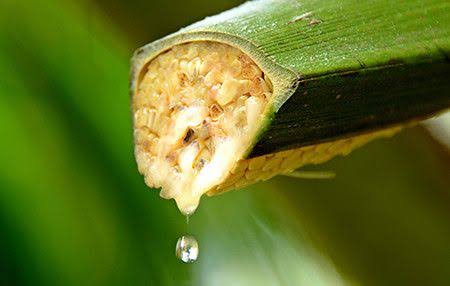
The recent outbreak of COVID-19 has magnified a fact that we often overlook – we are just creatures that are susceptible to the whims of nature. This pandemic has created a large amount of data since we become fixated to our gadgets. And while we are collecting and understanding Big Data 2 and its implications to various aspects of our lives, it is imperative that we develop technologies that can catch up with the amount of data that we are generating. This is where we focus on data management.
Our civilization’s data management has evolved from cave paintings, stone carvings, paper manuscripts, and currently electronic data – all telling the peoples’ narratives from one generation to another. After electronic data, how should we store the large amount of data that we have produced so far?
As our civilization enters the road to singularity 3 that is estimated by 2045, it is essential to understand how technology can be integrated not just to humans but also to non-human creatures. Much like how we download and upload data from our electronic devices, maybe we can store our civilization’s data to our non-human assets. Trees, for example, have been used by scientists to understand history by counting its rings – data storytelling. 4
Aside from the rings of trees for data storytelling, we can still tap other potentials of trees. Some areas of the country have mastered the process of tapping, which is the collection of “tagok” (sap/gum) from trees. This can be a foundational benchmark process. In the future, we can upload data to trees’ DNA and design it such that it is self-replicating without damage. 5 Doing so, we can also use “tapping” of sap or gum as a form of downloading mechanism whenever we need to retrieve some very old data. This is just a hypothesis, of course.
Two very popular trees that produce tagok in Mindanao are rubber and coconut. 6 With some further studies on its viability as biological storage medium, the common sap like tubâ (coconut sap) 7 may well be our future storage medium. This is the future we’re hoping for, but we can settle with the combination of paper manuscripts and electronic data for now.
As of now, there is already a thriving Mindanaoan Timber Industry that specializes in softwood production, especialy in Northern Mindanao. 8 The municipality of President Roxas in North Cotabato has an heirloom timber industry, but has declined in recent years. This is an opportunity that the municipality can look into, aside from the industries that it is currently developing. The area is suitable for falcata, a type of softwood that can be made into plywood or paper. This softwood can also be intercropped with existing banana since the wood can be made as natural posts during windy season. In the future, our data management systems may be using biological storage media. But for now, we can maximize the paper manuscript/electronic data systems we have, and contribute to the evolving Mindanaoan Timber Industry.
REFERENCES (URL, Retrieved on February 19, 2021)
3. https://www.amazon.com/Singularity-artificial-intelligence-out-think-Consciousness/dp/1845409078
4. https://scied.ucar.edu/learning-zone/how-climate-works/tree-rings
5. https://academic.oup.com/nsr/article/7/6/1092/5711038
6. https://ati.da.gov.ph/ati-10/main-tags/rubber-tapping
7. https://press.up.edu.ph/project/discovering-tuba/
8. https://www.manilatimes.net/2018/07/22/business/quicker-profits-from-fast-growing-trees/422070/
